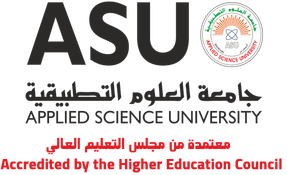The Activities of the International Week for Coaching 16-22 May 2016
Prof Saad Darwish on behalf of the Community Engagement Office, arranged to host the closing session of “The Activities of the International Week for Coaching”. This was done in collaboration with the Bahrain Society for Training & Development. Professional speakers Ms. Asma Askar, Dr Salman Al Fardan, Dr Hib Aghareeb, Mr. Abdullah Almuzain, Eng. Isaac Al Koohachi and Mrs Hind Mahmood gave excellent presentations on the development of coaching in Bahrain.
The event was under the Patronage of Dr Ebrahim Al Dossary the Honorary, President for Bahrain Society for Training & Development. Dr Al Dossary praised ASU and presented the Society Trophy as a sign of gratitude to ASU’s continuous support to the society which was received by Prof Saad Darwish on behalf of the president. Dr Hooriya AlDeeb, the Community Engagement Office Director attended the event.
This concept of coaching gained grounds since 1995 where it is defined as partnering with clients in a thought-provoking and creative process that inspires them to maximize their personal and professional potential. This includes a variety of coaching areas, including Executive Coaching, Life Coaching, Leadership Coaching, Relationship Coaching, Career Coaching and other skilled coaching fields.
Reported research showed that most clients reported improved work performance, better business management, more efficient time management, increased team effectiveness, and more growth and opportunities through coaching. The same study found that coaching clients noted greater self-confidence, enhanced relationships, more effective communications skills, better work-and-life balance and an improvement in wellness. Nearly 70 percent of individuals indicated they had at least made back their initial investment. The median suggests that a client who achieved financial benefit from coaching can typically expect a ROI of more than three times the amount spent.
https://coachfederation.org/files/FileDownloads/2013OrgCoachingStudy.pdf



